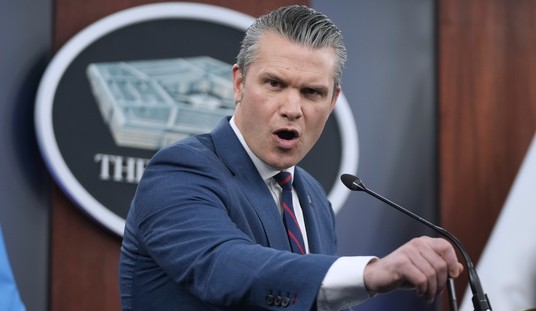And do Americans still support it? Those questions will hang over the summit meeting between Israeli prime minister Benjamin Netanyahu and new US president Donald Trump on Wednesday. The two will discuss ways to improve the key bilateral alliance, as well as the proper approach to Iran, ISIS, and the moribund peace process between Israel and the Palestinians:
The meeting with Mr. Trump on Wednesday is expected to set the tone for the American-Israeli relationship, which was notably frosty under President Barack Obama because of Israeli settlements in occupied territory, Israel’s vehement opposition to the nuclear deal with Iran and personality clashes with Mr. Netanyahu.
Although Mr. Trump’s comments on the settlements have tamped down expectations on the right of a new era unfettered by American constraints, some analysts here portray the president’s position as politically beneficial to Mr. Netanyahu. He is portraying himself as an experienced hand in dealing with Washington — unlike, he suggested, more aggressive forces on the right who are suggesting an annexation of some settlements.
“I have navigated Israeli-U.S. relations in a prudent manner, and I will continue to do so now,” Mr. Netanyahu told cabinet members on Sunday, according to an official transcript of his remarks, in which he noted that he and Mr. Trump “have known each other for years.”
During Barack Obama’s tenure, Netanyahu came under pressure from his opponents on the Israeli left for the deteriorating relationship and the lack of progress toward a two-state solution, for which Netanyahu has gone on record in support — if not enthusiastically. Now with a rapid warming of the Israeli-US relationship clearly under way, Netanyahu faces new pressure from his political allies on the Israeli right. With Trump so clearly aligned with Israel, they warn the prime minister to avoid saying two words during his visit:
Calling the upcoming visit to the White House “the test of Netanyahu’s life,” Bennett warned the 67-year-old prime minister that there were two words he could not utter at the meeting: “Palestinian state.”
“They must not be said. This is our test,” Bennett cautioned, voicing an ultimatum from the increasingly powerful settlers’ wing, a group that numbers more than 600,000 in the West Bank and East Jerusalem. If either side utters those words after the meeting, Bennett said, “the earth will shake.”
Inside Netanyahu’s own Likud party, activists have been circulating a letter calling for the prime minister to jettison the two-state paradigm.
Israel’s intelligence minister, Yisrael Katz, told Army Radio on Sunday: “Whoever talks about a Palestinian state today does not live in the real world. There is a general consensus among the public there is no way to reach it.”
There may be a question as to whether the topic will even come up. Will Donald Trump stick to American policy through administrations of both parties on support of the two-state solution? In the US, the previous consensus on a two-state solution has vanished. Gallup’s latest poll shows that Americans have gone from clear majority support to a virtual tie for the plan over the last fifteen years:

As President Donald Trump talks about reaching a peaceful resolution of the Israeli-Palestinian conflict that is “good for all sides,” a new Gallup poll finds the American public closely split over one of the Palestinians’ longtime demands — Palestinian statehood. Currently, 45% of Americans support establishing an independent Palestinian state on the West Bank and Gaza Strip while 42% oppose it. This follows years of significantly more Americans supporting than opposing Palestinian statehood.
Americans’ support for an independent Palestinian state is essentially unchanged from last year, but the percentage opposed is up five percentage points to 42% — the highest level seen in Gallup’s trend. However, on a proportional basis, the latest results are similar to 2015, when 42% favored a Palestinian state and 38% were opposed. The main difference is that fewer Americans today (13%) than in 2015 (20%) have no opinion.
Almost all of this decline has come from Republicans, but that’s not to say that independents have not had some impact on this, too. In 2003, at the apex of consensus behind this policy, 60% of Republicans and independents backed it — slightly more than the 55% of Democrats polled. Since then, Democratic support has risen to 61% while independents dropped to 42% in 2015 before rebounding somewhat to 50% now. Republican support has plummeted from 60% to 25%, the lowest in Gallup’s series on the question.
Needless to say, that doesn’t exactly give Trump much reason to press Netanyahu on the issue at their first meeting, especially if doing so will produce a political headache for his longtime friend. Still, Trump seems eager to get his son-in-law Jared Kushner involved in the Israeli-Palestinian peace process, and the two-state solution seems like the only framework that can succeed at all. Annexing the West Bank will force Israel to either grant Palestinians the vote or deny it to them, neither of which is politically tenable, and Jordan remains completely uninterested in taking back the West Bank through annexation or mandate, either.
Those aren’t the real obstacles, of course. The real obstacle is that the Palestinians don’t want a two-state solution. They want one state for themselves where Israel exists now. Until the Palestinians can accept a two-state solution, there isn’t much reason for Trump and Netanyahu to make it an immediate agenda item at their first summit.








Join the conversation as a VIP Member